The impact of data analytics on healthcare marketing can be understood through its definition, where it is a critical tool for understanding the intricate behaviors, preferences, and needs of patients and healthcare consumers. It involves the systematic examination of vast amounts of raw data collected from various sources, such as patient records, website interactions, social media engagement, and market research surveys.
Data analytics has become an integral part of the healthcare industry, significantly changing how healthcare providers operate. With the ever-increasing amount of data generated in the healthcare sector, it has become necessary to use advanced analytics tools to make sense of the data and derive insights that can be used to improve patient outcomes and reduce costs. In particular, data analytics has significantly impacted healthcare marketing, enabling healthcare providers to better understand their patients and target their marketing efforts more effectively.
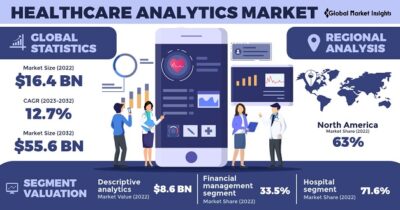
One of the key benefits of data analytics in healthcare marketing is that it enables healthcare providers to gain a deeper understanding of their patients. By analyzing patient data, healthcare providers can identify patterns and trends that can help them tailor their marketing efforts to better meet the needs of their patients. For example, data analytics can be used to identify the most effective channels for reaching different patient segments, as well as the types of messages that are most likely to resonate with them.
Another benefit of data analytics in healthcare marketing is that it enables healthcare providers to measure the effectiveness of their marketing efforts more accurately. By tracking key metrics such as patient engagement and conversion rates, healthcare providers can identify areas where their marketing efforts are falling short and make adjustments to improve performance. This can help healthcare providers optimize their marketing spend and achieve better results with fewer resources.
The Role of Data Analytics in Healthcare Marketing

As a healthcare marketer, you know how important it is to reach the right audience with the right message. Data analytics can help you achieve this goal by providing valuable insights into your target audience’s behavior, preferences, and needs.
One way data analytics can be used in healthcare marketing is by analyzing patient data to identify trends and patterns. By analyzing data such as patient demographics, medical history, and treatment outcomes, you can gain a better understanding of your target audience and tailor your marketing messages accordingly.
Another way data analytics can be used is by tracking the effectiveness of your marketing campaigns. By analyzing metrics such as website traffic, social media engagement, and email open rates, you can determine which campaigns are resonating with your audience and adjust your strategy accordingly.
In addition, data analytics can help you identify new opportunities for growth and innovation. By analyzing market trends and competitive intelligence, you can identify gaps in the market and develop new products or services that meet the needs of your target audience.
Overall, data analytics plays a crucial role in healthcare marketing by providing valuable insights into your target audience, measuring the effectiveness of your marketing campaigns, and identifying new opportunities for growth and innovation. By leveraging the power of data analytics, you can stay ahead of the competition and deliver more personalized and effective marketing messages to your audience.
Enhancing Patient Engagement Through Data Insights
Data analytics has revolutionized the healthcare industry, enabling healthcare providers to gain insights into patient behavior and preferences. By leveraging data insights, healthcare marketers can create targeted communication strategies that enhance patient engagement and improve patient outcomes.
Targeted Patient Communication

Data analytics allows healthcare providers to segment patient data and create targeted communication strategies. By analyzing patient data, healthcare marketers can identify patients who are at risk of non-compliance and create targeted communication strategies to encourage them to follow their treatment plan.
For example, healthcare providers can use data insights to identify patients who have missed appointments or medication refills. By sending targeted communication to these patients, healthcare providers can remind them of their appointments and encourage them to follow their treatment plans.
Personalized Patient Journeys
Data analytics allows healthcare providers to create personalized patient journeys that improve patient engagement and outcomes. By analyzing patient data, healthcare providers can identify patient preferences and create personalized treatment plans that meet their unique needs.
For example, healthcare providers can use data insights to identify patients who prefer digital communication channels. By creating personalized journeys that include digital communication channels, healthcare providers can improve patient engagement and satisfaction.
In conclusion, data analytics has transformed healthcare marketing, enabling healthcare providers to create targeted communication strategies and personalized patient journeys. By leveraging data insights, healthcare providers can enhance patient engagement and improve patient outcomes.
Optimizing Marketing Budget Allocation

As a healthcare marketer, you understand the importance of allocating your budget effectively to maximize your return on investment (ROI). With the help of data analytics, you can optimize your marketing budget allocation to ensure that you are reaching your target audience in the most cost-effective way possible.
Cost-Effective Channel Selection
One of the key benefits of data analytics is the ability to identify the most cost-effective channels for your marketing campaigns. By analyzing data on customer behavior and preferences, you can determine which channels are most likely to reach your target audience and generate the highest ROI.
For example, suppose your data analytics shows that your target audience is primarily active on social media. In that case, you can allocate more of your budget towards social media advertising rather than traditional marketing channels like print or television.
ROI Analysis and Attribution Modeling
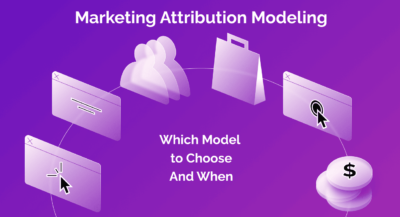
Another way that data analytics can help optimize your marketing budget allocation is through ROI analysis and attribution modeling. By analyzing the ROI of each marketing campaign, you can determine which campaigns are generating the highest return on investment and allocate more budget towards those campaigns.
Attribution modeling allows you to understand which marketing channels and touchpoints are most effective in driving conversions. By analyzing customer behavior across multiple touchpoints, you can determine which channels are most effective in driving conversions and allocate your budget accordingly.
In conclusion, data analytics is a powerful tool for optimizing your healthcare marketing budget allocation. By analyzing customer behavior and preferences, you can identify the most cost-effective channels for your marketing campaigns and allocate your budget towards the campaigns that generate the highest ROI.
Data-Driven Decision-Making in Healthcare
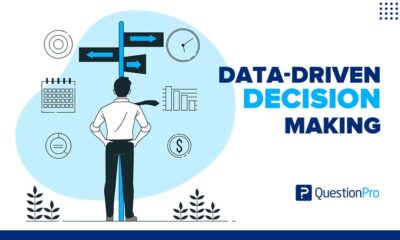
As healthcare marketing continues to evolve, data analytics is becoming an essential tool for making informed decisions. Data-driven decision-making involves using data to guide strategic planning and marketing efforts. By leveraging data analytics, healthcare organizations can gain insights into market trends, competitive intelligence, and consumer behavior.
Predictive Analytics for Market Trends
Predictive analytics is a powerful tool for healthcare marketers to forecast future market trends. By analyzing historical data and identifying patterns, predictive analytics can help healthcare organizations anticipate changes in consumer behavior and market demand. Healthcare marketers can adjust their marketing strategies with this information to better align with future market trends.
For example, predictive analytics can help healthcare organizations identify which services or products are likely to be in high demand in the future. Healthcare marketers can develop targeted marketing campaigns that resonate with their target audience by analysing consumer preferences and healthcare trends.
Competitive Analysis and Strategic Planning

Data analytics can also help healthcare organizations gain a competitive edge by providing insights into their competitors’ marketing strategies. By analyzing data on their competitors’ marketing efforts, healthcare organizations can identify gaps in the market and develop strategies to differentiate themselves.
For example, data analytics can help healthcare organizations identify their competitors’ marketing channels and which are most effective. Armed with this information, healthcare marketers can develop targeted marketing campaigns that reach their target audience more effectively.
In addition, data analytics can also help healthcare organizations develop more effective strategic plans. By analyzing data on consumer behavior and market trends, healthcare organizations can develop strategies that are more likely to succeed in the long run. This can include developing new products or services, expanding into new markets, or investing in new marketing channels.
Overall, data-driven decision-making is becoming increasingly important in healthcare marketing. By leveraging data analytics, healthcare organizations can gain valuable insights into market trends, competitive intelligence, and consumer behavior, which can inform their strategic planning and marketing efforts.
Challenges and Considerations
Data Privacy and Security
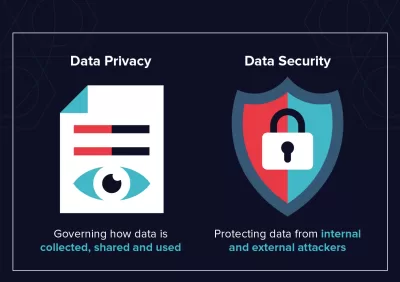
One of the biggest challenges in using data analytics in healthcare marketing is ensuring the privacy and security of patient data. As a marketer, you need to be aware of the regulations and laws surrounding the use of patient data, such as HIPAA and GDPR. You must also ensure that the data you collect is stored securely and that only authorized personnel can access it.
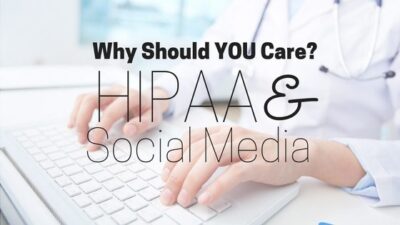
To address these challenges, you can implement data encryption, access controls, and regular security audits. You can also work with IT professionals to ensure that your data analytics tools are compliant with relevant regulations and that your data is stored securely.
Ethical Use of Patient Data
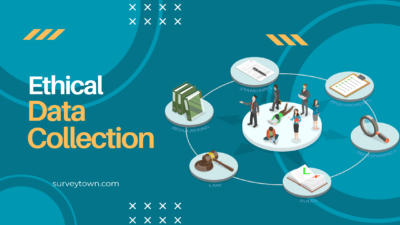
Another important consideration when using data analytics in healthcare marketing is the ethical use of patient data. You must ensure that you use patient data ethically and do not violate patient privacy. This means that you should only collect data relevant to your marketing efforts and should not use patient data for purposes other than those for which it was collected.
To address these challenges, you can establish clear policies and procedures for the collection and use of patient data. You can also work with legal professionals to ensure that your marketing efforts are compliant with relevant regulations and that you are not violating patient privacy.
Overall, the challenges and considerations of using data analytics in healthcare marketing are significant, but they can be addressed with the right tools, policies, and procedures. By ensuring the privacy and security of patient data and using patient data ethically, you can leverage data analytics to improve your marketing efforts and provide better healthcare services to your patients.
Future Trends in Healthcare Marketing Analytics
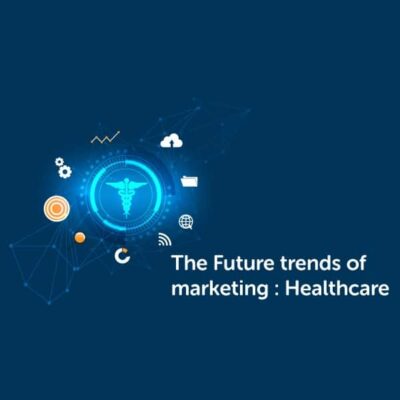
As healthcare marketing continues to evolve, data analytics will play an increasingly important role in shaping the industry. Here are some future trends to keep an eye on:
Artificial Intelligence and Machine Learning
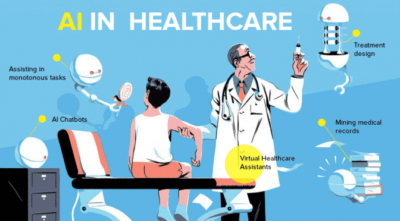
Artificial intelligence (AI) and machine learning (ML) are poised to revolutionize healthcare marketing analytics. With AI and ML, healthcare marketers can gain insights into patient behavior, preferences, and needs, allowing them to create more personalized and effective marketing campaigns.
AI and ML can also help healthcare marketers identify patterns and trends in data that would be difficult or impossible to detect with traditional analytics methods. This can lead to more accurate predictions and better decision-making.
The Growing Importance of Interoperability
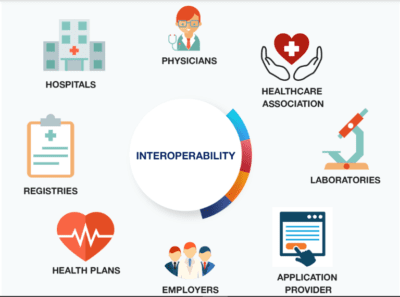
Interoperability – the ability of different healthcare systems and technologies to communicate and share data – is becoming increasingly important in healthcare marketing analytics. With interoperability, healthcare marketers can access a wider range of data, including electronic health records, medical claims data, and social media activity.
This can help healthcare marketers gain a more complete picture of patient behavior and preferences, allowing them to create more targeted and effective marketing campaigns. Interoperability can also help healthcare organizations improve patient outcomes by enabling better care coordination and more effective use of resources.
Overall, the future of healthcare marketing analytics looks bright. With the help of AI, ML, and interoperability, healthcare marketers will be able to gain deeper insights into patient behavior and preferences, enabling them to create more personalized and effective marketing campaigns.
